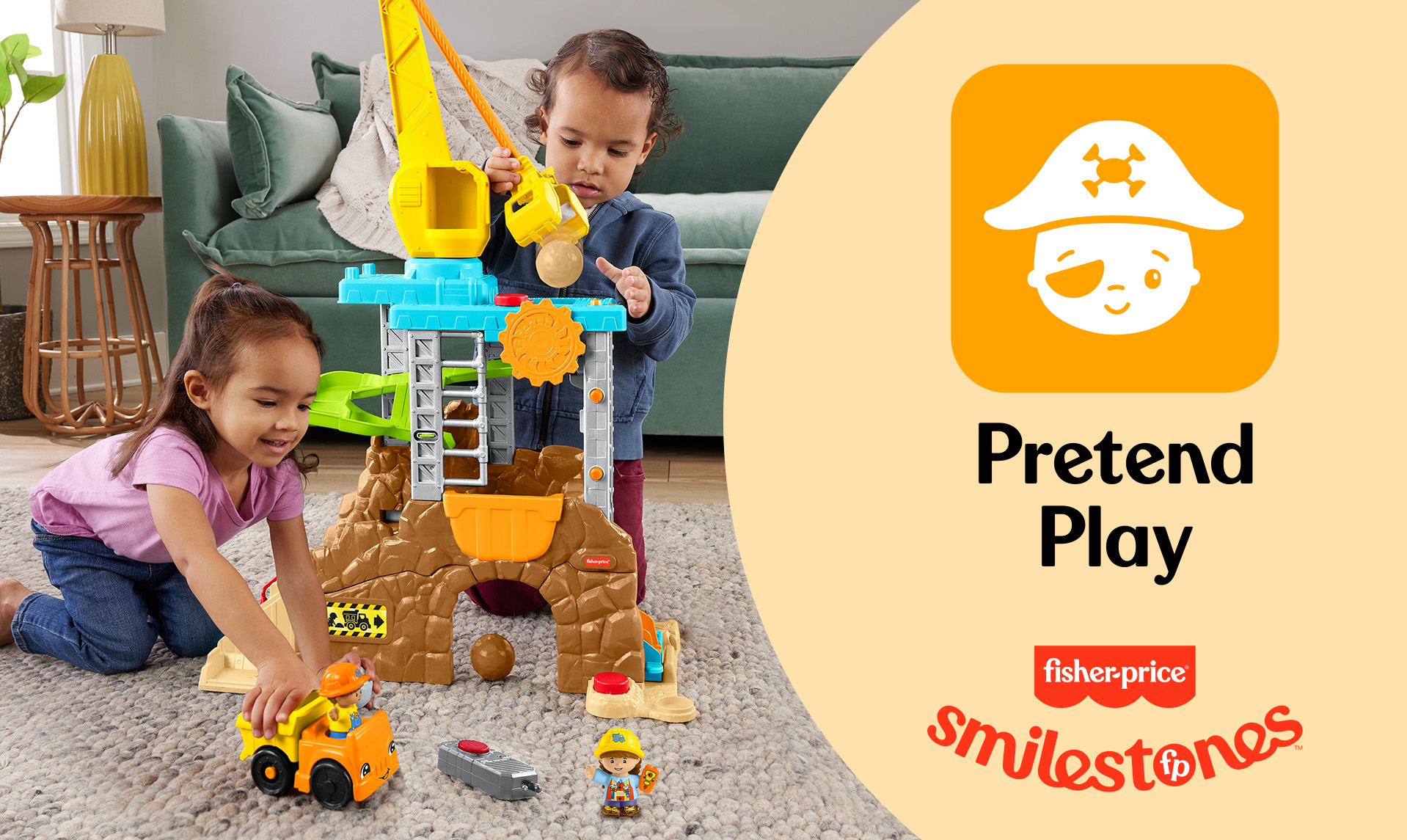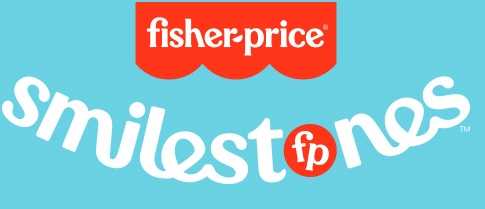Pretend Play: How To Spark Your Toddler’s Imagination
August 2, 2023

As your little one grows, their imagination is where they start to make sense of the world, how it all works, and the different roles grownups can play. From babbling on a toy phone, to “cooking” dinner in their play kitchen, pretend play helps your toddler learn how the real world works and how they might fit into it.
As an early childhood development expert and mom of two, I’ve got a ton of frequent flyer miles to the land of make-believe. But in case it’s been a little while since you’ve visited, let me share what you can expect as your little one grows, as well as some tips to help spark their imagination.

Why is pretend play important?
Pretend play lets toddlers explore the world around them in the comfort and wonder of their imagination. They can pretend to be a farmer harvesting crops, a veterinarian caring for their stuffed animal, or a racecar driver who wins the big race. The possibilities are endless!
As they describe what’s happening in their pretend scenario, your toddler is developing valuable language skills that help them speak, understand, and use words meaningfully.
When your little one plays with other kids, they further develop their language skills, as well as social and problem-solving skills. Whether they’re building a fort or choosing roles to play house, playing together helps kids learn how to compromise, negotiate, and share.
Pretend play also encourages self-regulation and important emotions. Kids who have pretend wrestling matches or play sharks & minnows are learning impulse control and how to set and respect boundaries.
Most importantly, your little one finds meaning and purpose through pretend play, which helps build their confidence and self-esteem. If they can put on a chef’s hat and bake you the very best birthday cake, what else can they do?

Simple pretend play tips
Ready to get started? Here are some simple tips and tricks to help your toddler get the hang of pretending.

1. Use toy figures to "practice" a big or new event...
... that is happening for your toddler, like going on a trip or starting a new school. Playing and practicing will help them become familiar so that new events won’t be so intimidating.

2. Offer story starters...
... to spark their imagination, such as “Is your stuffed bear hungry? Do they like apple slices, too?”

3. Set them up for success!
Toddlers can jump right into pretending when the toys they are using invite this type of play, like interactive playsets or toy versions of grownup stuff.

4. Play with them.
Expand your tot’s pretend play skill set by introducing new, more complex stories rich with emotions, language, and fun props. For example, you can “go camping” indoors by working together to build a tent, then “roasting” marshmallows around the cozy fake fire.
Surprising tips


How pretend play develops
You’ll probably notice your toddler’s imitation play first (9-12 months), which centers on a simple action like tapping their tiny hands on a toy laptop or cradling a baby doll.
Typically, toddlers shift into pretend play around 2 years old. This is when you’ll see them act out familiar scenes and roles they see people perform in real life, like a parent caring for a baby or a doctor doing a checkup on a patient.
Pretend play timeline for toddlers
Every child develops at their own pace. So, this is just a general timeline.

12-18 months Imitates simple actions that they have observed adults doing

12-18 months Uses props in realistic ways as they play, like making a pretend call on their toy phone

16-24 months Uses props in unexpected ways as they play, like pretending a banana is a phone

24-30 months Engages in thematic pretend play with multiple objects and actions

24-36 months Imagines themselves as other things or people during play

30-36 months Plays make-believe with you and others where the stories make sense




Parent check-in
So, how’s it going?
Keep in mind there’s no wrong way to play pretend. They might be figuring out how the real world works, but that doesn’t mean it has to be perfect. If they want to grow baseball trees on their pretend farm, I say why not offer to help with the harvest?
And if you’re not yet dining on today’s special peanut butter & broccoli pizza from your little chef’s play kitchen, you surely will soon, and it might be the most deliciously sweet moment of your day.
Gentle reminder: If you ever have concerns about your child’s development, trust your gut and reach out to your pediatrician.”

Bringing a smile to milestones.
Say hello to happier parenting. We’re here to help you celebrate the little victories, let go of expectations, and pick up more positivity. Because after more than 90 years of helping families, we’ve learned that development happens naturally when fun leads the way.
Learn More









































